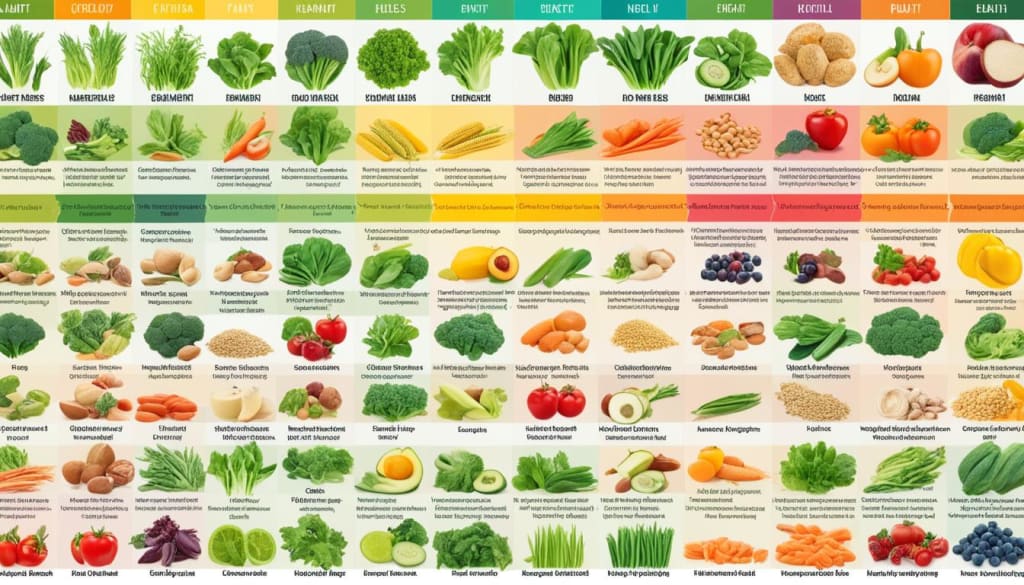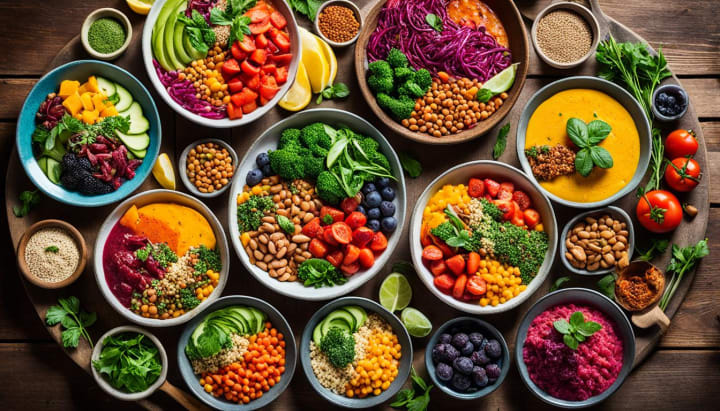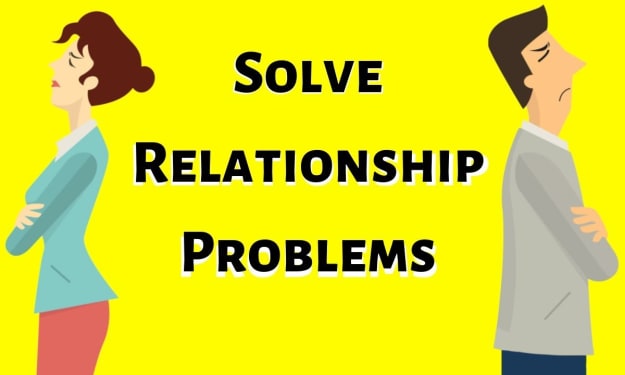The Rise of Plant-Based Diets: A Delicious Revolution Taking Root
Discover the health benefits of plant-based diets backed by research. Explore how this delicious revolution is transforming lives and promoting wellness.

Our dietary choices are changing, and a big shift is happening. Plant-based diets are becoming more popular, changing how we see food. This change is because of the health, ethical, and environmental benefits of eating more plants.
A recent report shows the plant-based food market could hit $74.2 billion by 2027. This growth is fast, at 11.9% a year. More people are choosing plant-based foods because they taste great and are good for us and the planet.
More people want to eat in a way that's kind to animals and the earth. They're choosing plant-based foods to reduce their impact on the environment. This move is also about supporting a sustainable food system.
Key Takeaways
- The global plant-based food market is projected to reach $74.2 billion by 2027, reflecting a remarkable 11.9% growth rate.
- Increasing awareness of the health benefits, ethical considerations, and environmental impact of plant-based diets is driving their mainstream adoption.
- Plant-based eating is transforming the culinary landscape, with a growing abundance of delicious and accessible plant-based options.
- Concerns about animal welfare and the environmental consequences of industrial animal agriculture are motivating people to seek alternative, plant-forward lifestyles.
- The rise of plant-based diets represents a shift towards a more sustainable and conscious approach to food and nutrition.
Embracing a Plant-Forward Lifestyle
More people are turning to plant-based diets because of their health, ethical, and environmental benefits. They want to feel better, lessen their impact on the planet, and eat in line with their beliefs.
The Growing Popularity of Plant-Based Eating
Plant-based eating is becoming more popular, with more folks choosing meatless and veggie-rich meals. The market for these foods is expected to hit $162 billion by 2030. This shows how much people value the health and wellness perks of plant-based diet health benefits and plant-based meals and wellness.
Younger folks, especially millennials and Gen Z, are at the forefront of this trend. They're pushing for vegetarian diet impact and meatless lifestyle effects. Issues like animal welfare, the environmental harm from farming animals, and health benefits of plant-based diet are driving this shift.
Ethical and Environmental Considerations
Many choose plant-based diets for ethical reasons. They're aware of the harsh conditions in some farms and want to eat more compassionately and sustainably. This choice lets them live in line with their values.
Animal agriculture's environmental effects are also a big worry. It uses a lot of resources and harms the planet with greenhouse gases, deforestation, and water use. Going plant-based helps cut down on these issues and supports greener food systems.
As people seek more ethical and green lifestyles, plant-based diets and plant-based meals and wellness will likely keep gaining popularity. This trend is set to grow even more in the future.
Plant-based diet health benefits research
In recent years, scientists have looked closely at how plant-based diets help our health. They found that eating lots of whole, plant-based foods can greatly improve our health in many ways.
A big study in the Journal of Geriatric Cardiology looked at how plant-based diets help the heart. It showed that eating more plants can lower the risk of heart disease and stroke. This is because plant foods are full of fiber, antioxidants, and anti-inflammatory stuff.
"Numerous studies have demonstrated that a whole-food, plant-based diet can prevent and even reverse many of the leading causes of death in the United States."
Studies on vegan diets also show they can help with weight and metabolism. A study in the Nutrients journal found that a whole-food, plant-based diet led to more weight loss and better health markers than other diets.
Also, eating more plants might lower the risk of some cancers. A study in the Frontiers in Nutrition journal found that eating more fruits, veggies, and whole grains was linked to less cancer risk. This includes colorectal, breast, and prostate cancer.
These studies show strong evidence that eating a diet full of whole, plant-based foods is good for our health and happiness.
Exploring the Nutritional Powerhouse of Plants
Plant-based meals are key to wellness. They are tasty and full of vitamins, minerals, and phytochemicals. These nutrients boost our health and well-being.
Essential Nutrients in Whole Plant Foods
Eating a lot of vegetables is great for us. These foods are full of nutrients. They include:
- Vitamins like vitamin A, C, E, and the B-complex, which are crucial for immune function, skin health, and energy production.
- Minerals such as calcium, iron, magnesium, and potassium, which support strong bones, healthy blood, and balanced fluid levels in the body.
- Phytochemicals - unique plant compounds that possess antioxidant and anti-inflammatory properties, helping to protect cells from damage and reduce the risk of chronic diseases.
Adding many whole plant foods to our diet helps us get all the nutrients we need. This approach shows how powerful plant-based meals and wellness can be.
"A plant-based diet, rich in a diversity of fruits, vegetables, whole grains, legumes, nuts, and seeds, provides a broad spectrum of beneficial nutrients that work synergistically to support overall health and well-being."
By eating a variety of plant-based foods, we make sure our bodies get all the nutrients for good health. This way, we can live a healthier and more sustainable life.
Delectable Plant-Based Cuisine
The plant-based revolution has brought a new era of tasty food, proving that plant-based diets are not boring. Today, chefs and cooks are showing off the amazing variety and great tastes of plant-based meals. They're changing how we see plant-based meals and wellness.
Now, plant-based food is more diverse and fun than ever. New recipes and ways of cooking are pushing the limits of what a plant-based meal can be. They focus on bold flavors and look great too.
No more boring tofu and salads. Plant-based chefs and cooks are now using a wide range of healthy, tasty ingredients. They use things like legumes, grains, herbs, and spices to make dishes that are both healthy and delicious.
"The plant-based revolution has ushered in a new era of culinary delights, dispelling the misconception that a plant-forward diet is limited or bland."
If you're a vegan or just want to eat more plant-based meals, there are lots of great options. You can try everything from savory stir-fries and creamy curries to rich desserts and tasty burgers. The choices are endless.

As more people want plant-based meals and wellness, chefs and cooks are getting creative. They're showing off their skills and encouraging others to try plant-based food. With each new dish, the idea that plant-based meals are boring is fading. This opens the door to a healthier, more enjoyable way of eating.
Busting Myths About Vegetarian and Vegan Diets
The rise of plant-based eating has sparked a lot of interest. But, it has also led to many misconceptions. As more people try a vegan nutrition studies or meatless lifestyle effects, it's important to clear up the myths with facts.
Addressing Common Misconceptions
Many think vegetarian and vegan diets don't have enough protein. But, a well-planned plant-based diet can give you all the amino acids you need. Foods like legumes, nuts, seeds, and whole grains are great for protein.
People also worry about not getting enough iron, calcium, and vitamin B12. But, with some planning and supplements if needed, you can get these nutrients from fruits, vegetables, and fortified foods.
- Leafy greens, lentils, and fortified plant-based milk are all great sources of iron.
- Tofu, tempeh, and leafy greens provide ample calcium.
- Nutritional yeast, fortified cereals, and supplements can help meet vitamin B12 requirements.
The idea that a meatless lifestyle effects is hard and limiting is wrong. With so many tasty and easy plant-based choices, switching to a vegetarian or vegan diet is simpler than ever. You can enjoy everything from veggie burgers to dairy-free ice cream.
There are several common misconceptions about vegetarian and vegan diets that often deter people from adopting these lifestyles. One prevalent myth is that these diets lack protein. However, plant-based diets can provide all the essential amino acids needed for a healthy body.
Another common belief is that nutrient deficiencies are rampant among those following plant-based diets. In reality, with proper planning and supplementation, individuals can ensure they receive adequate nutrient intake.
Lastly, some people think vegetarian and vegan diets are overly restrictive. Contrary to this belief, there is a wide variety of delicious and convenient plant-based options available, making these diets not only sustainable but also enjoyable
By clearing up these misconceptions with facts, we can help people feel confident and easy about trying a vegan nutrition studies or meatless lifestyle effects.
Plant-Based Diets and Disease Prevention
Studies show that eating more plants can lower the risk of many chronic diseases. By eating whole, plant-rich foods, people can enjoy big health benefits. This is because plant-based foods are full of fiber, antioxidants, and phytochemicals.
The Link Between Plant-Rich Eating and Reduced Risk
Many studies have found that eating plants can protect against heart disease, type 2 diabetes, and some cancers. This is because plant foods are full of fiber, antioxidants, and phytochemicals. These help keep you healthy and feeling good.
A review in the Journal of Geriatric Cardiology found that eating plants can lower the risk of heart disease. It does this by improving cholesterol, blood pressure, and reducing inflammation. Also, a plant-based diet can help manage and even reverse type 2 diabetes. It does this by making insulin work better and controlling blood sugar.
Research also shows that eating plants can lower the risk of some cancers, like colorectal, breast, and prostate cancer. The antioxidants and phytochemicals in plants may stop cancer cells from growing and spreading.
A plant-based diet can significantly reduce the risk of several major diseases. For cardiovascular disease, it helps lower cholesterol levels, blood pressure, and inflammation, which are key factors in heart health.
When it comes to type 2 diabetes, a plant-based diet can improve insulin sensitivity and help maintain better blood sugar control. Furthermore, adopting a plant-based diet may reduce the risk of certain cancers by inhibiting the growth and spread of cancer cells.
Eating more plant-based foods is a great way to prevent and manage chronic diseases. By choosing whole, plant-based foods, you can take charge of your health. This can lead to a healthier and happier life.

"A whole food, plant-based diet is one of the most powerful tools we have to reduce the risk of chronic disease and improve overall health."
Transitioning to a Plant-Forward Lifestyle
Switching to a plant-based diet and a meatless lifestyle might seem big, but it's worth it. It can boost your plant-based meals and wellness and help the planet. This change can be empowering and change your life for the better.
Start by making small changes. Add more plant-based meals and wellness to your daily life. Try replacing meat with vegetarian or vegan dishes. Eat a variety of whole plants like fruits, veggies, grains, and legumes.
It's key to clear up wrong ideas about plant-based diets. Make sure you get all the nutrients your body needs with a balanced diet. Talk to a health expert or dietitian to help you switch smoothly.
- Start with small, manageable changes to your eating habits.
- Experiment with new plant-based recipes and discover the joys of plant-based meals and wellness.
- Educate yourself on the nutritional benefits of a plant-forward lifestyle.
- Surround yourself with a supportive community of like-minded individuals.
- Be patient and kind to yourself as you navigate this journey of transformation.
Going plant-forward is more than just changing what you eat. It's a big change that affects your health, the planet, and your values. By joining this tasty movement, you'll feed your body and help make the world better.
"Changing your diet can change the world." - Unknown
Every journey to a plant-forward life is different. Take it one step at a time, celebrate your wins, and enjoy the meatless lifestyle effects. This will lead you to a healthier, greener future.
The Global Impact of Plant-Based Eating
The plant-based movement is more than just a trend. It's a powerful change that could make a big difference worldwide. More people are choosing to eat more plants, which is good for health and the planet.
Studies show that eating more plants can lower the risk of many diseases. It also helps the environment by reducing the harm caused by traditional farming. By picking plant-based foods, people help make the future greener and save our natural resources.
Also, eating more plants is linked to caring for animals and the way we farm them. As people learn more about this, they want to eat less meat. This change is making a positive impact on many areas of society.
FAQ
What are the health benefits of a plant-based diet?
A plant-based diet is full of whole, unprocessed foods. It can lower the risk of chronic diseases like heart disease, type 2 diabetes, and some cancers. It also helps with weight management, gut health, and overall well-being.
How does a plant-based diet compare to a traditional omnivorous diet in terms of environmental impact?
A plant-based diet is better for the environment than a diet with animal products. It uses less land, water, and energy and creates fewer greenhouse gases. This makes it a sustainable and eco-friendly choice.
Can a plant-based diet provide all the necessary nutrients for optimal health?
Yes, a well-planned plant-based diet gives you all the nutrients you need. This includes protein, vitamins, minerals, and healthy fats. Eating a variety of whole, plant-based foods helps you stay healthy.
Is it difficult to transition to a plant-based lifestyle?
Switching to a plant-based lifestyle can be easy with the right help and support. It's a process that can be done step by step. Be patient and slowly add more plant-based foods to your diet.
What are some ethical reasons for choosing a plant-based diet?
Some people choose plant-based diets for ethical reasons. They care about animal welfare, the environment, and how animal farming affects the planet. Eating plant-based lets them live by their values and help make the food system better.
Related Articles
For further reading on the topic, here are some trending articles:
1."Plant-Based Trends to Watch in 2024" - Food Institute
2.Why the Top-Performing Diets for 2024 Are Plant-Forward, According to ‘US News & World Report - VegNews
3.The Top 5 Trends in Plant-Based Eating for 2024 - Forbes
By exploring these resources, you can gain a deeper understanding of the benefits and implications of plant-based diets and stay informed about the latest trends and research in this rapidly evolving field.
About the Creator
WALID ABDIN
🌿 Welcome to my page🌿
Dedicated to your journey to better health, I'm here to guide and inspire you. From practical tips for a balanced lifestyle to the latest in wellness trends, my goal is to empower you to live your healthiest life
Enjoyed the story? Support the Creator.
Subscribe for free to receive all their stories in your feed. You could also pledge your support or give them a one-off tip, letting them know you appreciate their work.






Comments
There are no comments for this story
Be the first to respond and start the conversation.